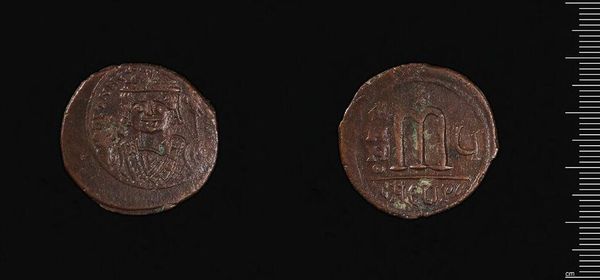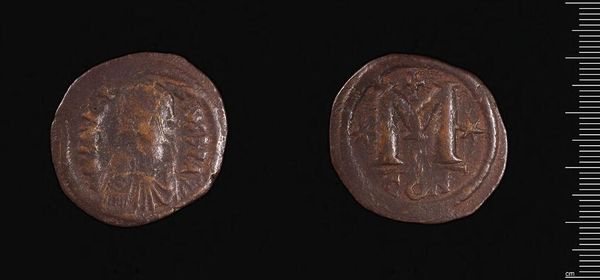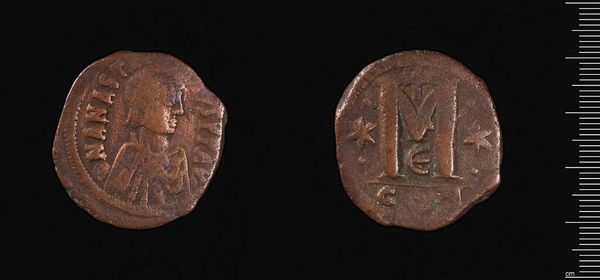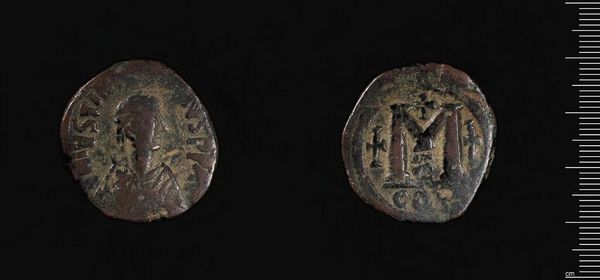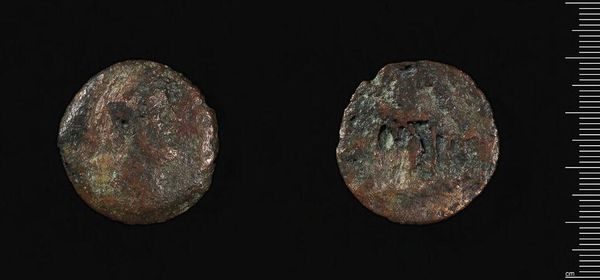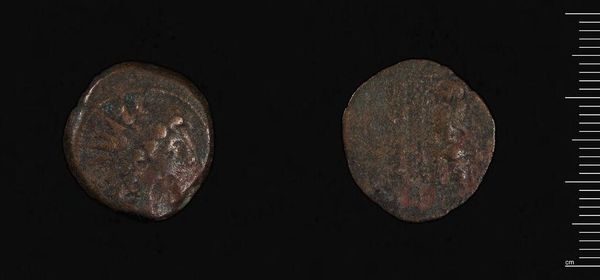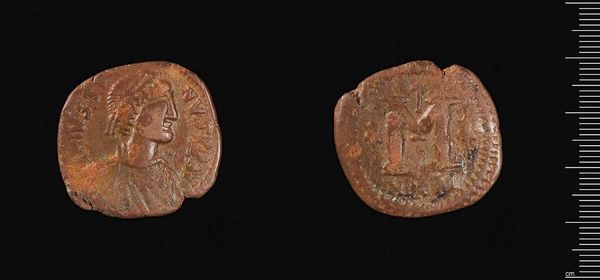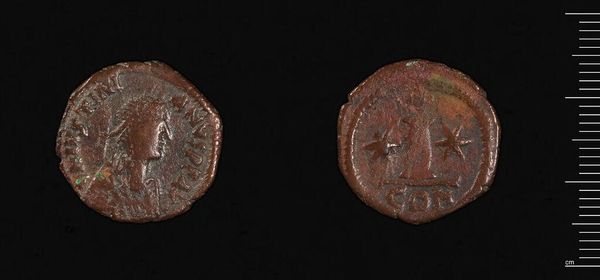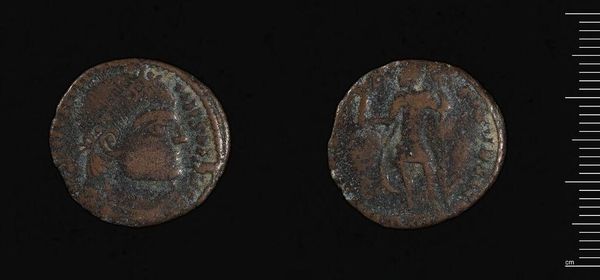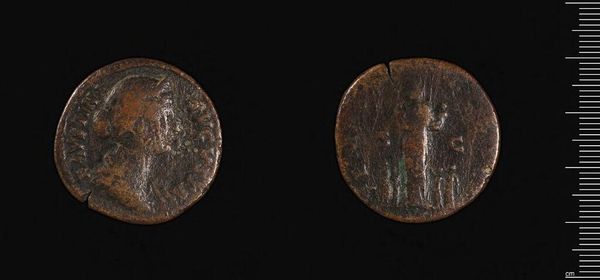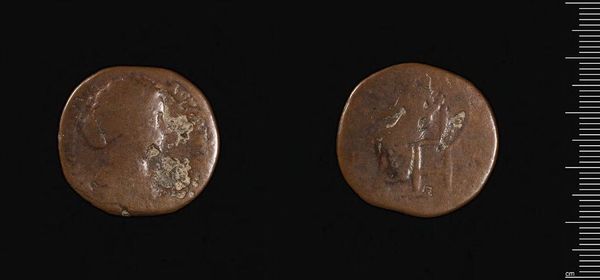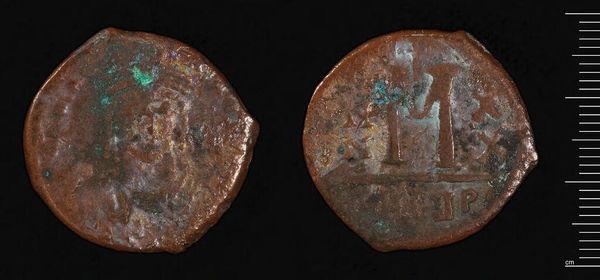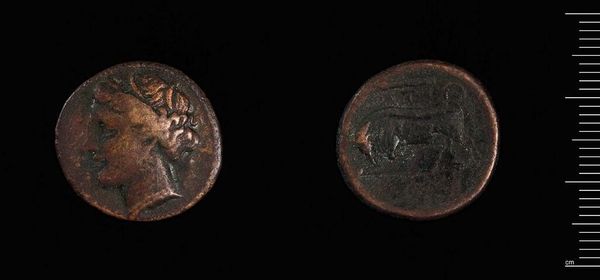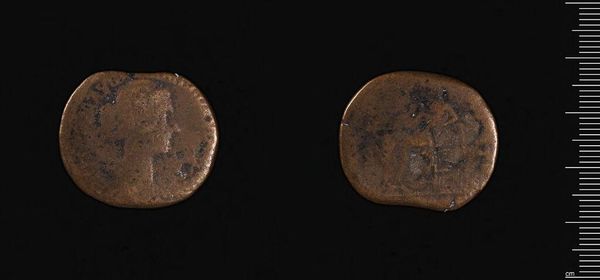
Dimensions: 16.47 g
Copyright: CC0 1.0
Curator: Here we have a Follis of Justinian I, created in Constantinople, weighing 16.47 grams. It's a tangible remnant of Byzantine administration. Editor: Immediately, I'm struck by its weight, that tactile sense of history. All those hands it must have passed through. A bit worn, yes, but wonderfully so. Curator: Its material construction speaks to its function as currency, yes, but also as a symbol of imperial power, circulating the emperor's image and authority. Editor: And it's not just about authority, but the human element, this very human need to trade, to connect. It's a small, copper story of empire. Curator: Precisely. The production process reflects a complex interplay between the state's control over resources and the labor of its artisans. Editor: I'm left thinking about the legacy it carries, how it embodies an era and invites us to think about value—economic and human. Curator: Absolutely. It prompts us to consider how objects accrue meaning through their production and use. Editor: A fitting end to our little coin's journey, wouldn't you say?
Comments
No comments
Be the first to comment and join the conversation on the ultimate creative platform.
